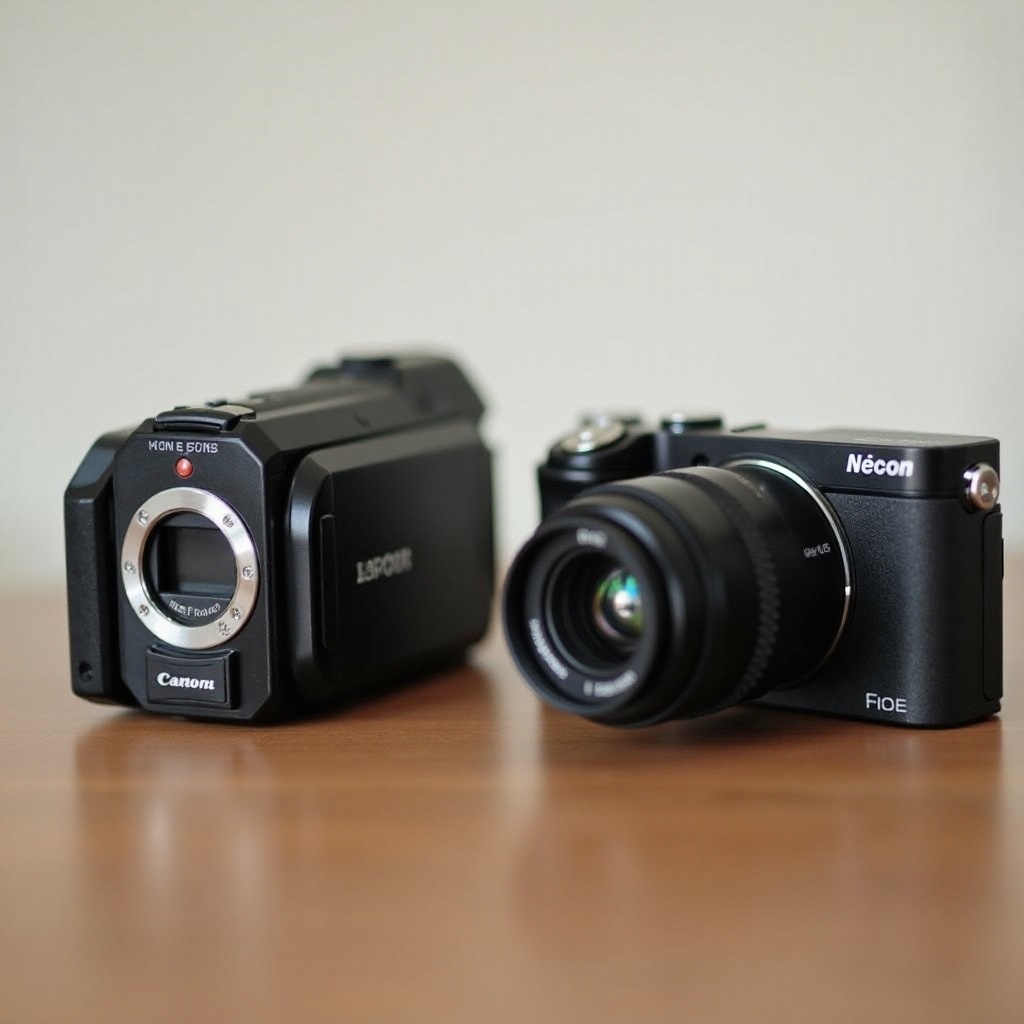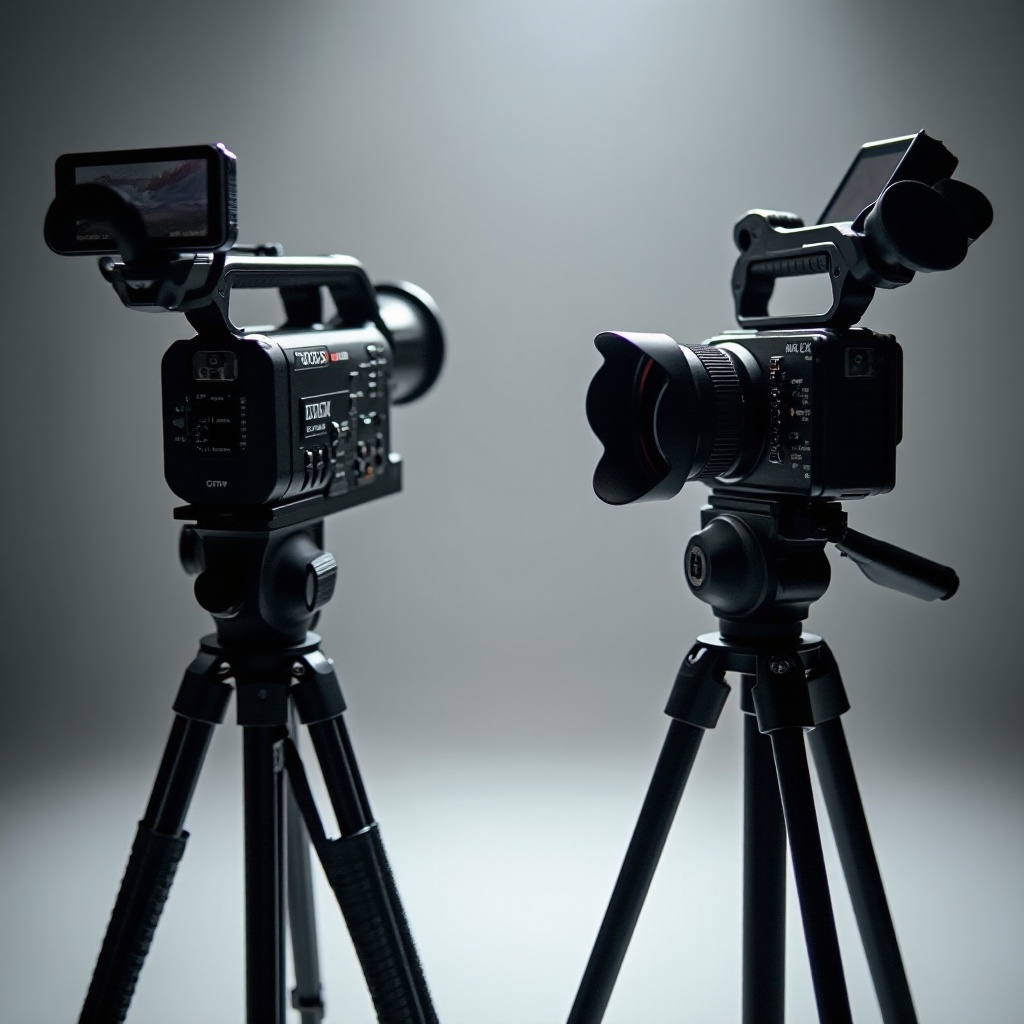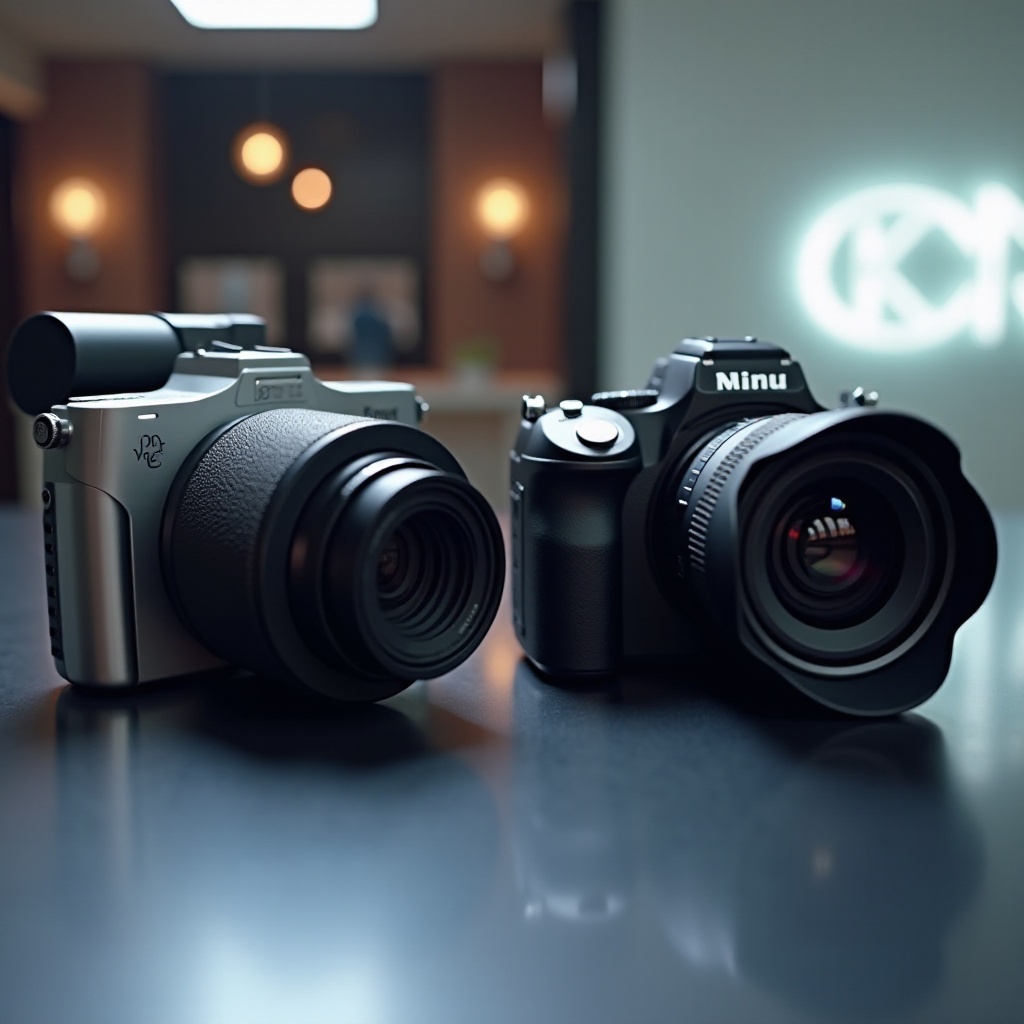Camcorder vs Mirrorless Camera: Which is Best for You?
Introduction
When choosing a video recording device, two top contenders are camcorders and mirrorless cameras. Both have distinct advantages and cater to various needs, making the decision challenging. This blog aims to guide you through the features, pros, and cons of camcorders and mirrorless cameras, comparing their video quality, usability, portability, accessories, lenses, price, and value. Let’s delve into the details to help you make an informed decision suitable for your requirements.

Understanding Camcorders
What is a Camcorder?
A camcorder is a video recording device designed solely for capturing high-quality video. It integrates a camera and a video recorder, having evolved significantly since the first portable models in the 1980s. Modern camcorders feature advanced technology, allowing users to shoot videos seamlessly, making them a preferred choice for many videographers and content creators.
Key Features of Camcorders
Camcorders are equipped with powerful features that enhance video recording:
- Optical Zoom: Provides clear images even at long distances without compromising quality.
- Built-in Stabilization: Reduces camera shake, producing smooth videos.
- Long Record Times: Capable of recording for extended periods without interruption.
- Swivel LCD Screens: Facilitates easy viewing and recording from different angles.
- Integrated Microphones: Often include high-quality microphones to capture clear audio.
Pros and Cons of Using Camcorders
Camcorders come with several advantages and some disadvantages:
Pros:
1. Dedicated video capture with extensive features.
2. Better stabilization for handheld shooting.
3. Long battery life and continuous recording abilities.
4. Easy-to-use interface, ideal for beginners.
Cons:
1. Larger and bulkier compared to other cameras.
2. Limited flexibility in changing lenses.
3. Often lacks the versatility needed for professional photography.
Understanding Mirrorless Cameras
What is a Mirrorless Camera?
A mirrorless camera is a type of digital camera that bypasses the mirror mechanism found in DSLRs. This allows light to pass directly through the lens to the digital sensor, resulting in a more compact and lightweight design. Mirrorless cameras are known for their versatile use in both photography and videography due to their interchangeable lenses and advanced features.
Key Features of Mirrorless Cameras
Mirrorless cameras boast features that appeal to various types of photographers and videographers:
- Interchangeable Lenses: Allows for greater creative flexibility.
- High-Resolution Sensors: Captures detailed and high-quality images and videos.
- Electronic Viewfinders: Provides a digital preview of the exposure, white balance, and other settings.
- Compact Design: Easy to carry and travel-friendly.
- Advanced Autofocus Systems: Ensures quick and accurate focus.
Pros and Cons of Using Mirrorless Cameras
Mirrorless cameras offer several benefits and have some drawbacks:
Pros:
1. Compact and lightweight design.
2. Flexibility with interchangeable lenses.
3. High image and video quality.
4. Advanced autofocus with face and eye detection.
Cons:
1. Shorter battery life compared to camcorders.
2. Potentially higher initial investment.
3. Steeper learning curve for beginners.
Comparing Video Quality
Resolution and Frame Rates
Both camcorders and mirrorless cameras provide excellent resolution and frame rates, but their capabilities differ. Camcorders often excel in recording high frame rates for smooth motion, essential for sports and action videos. On the other hand, mirrorless cameras typically offer higher resolution sensors, making them ideal for capturing detailed and cinematic footage.
Low Light Performance
Mirrorless cameras generally outperform camcorders in low light conditions due to larger sensors and better dynamic range. This allows mirrorless cameras to capture more detail and less noise in challenging lighting situations, providing superior video quality in various environments.
Color Accuracy and Dynamic Range
Color accuracy and dynamic range are crucial for producing high-quality videos. Mirrorless cameras often offer better color reproduction and dynamic range compared to camcorders. Advanced color science and larger sensors in mirrorless cameras help achieve vibrant and true-to-life colors, making them suitable for professional video production.

Comparing Usability and Portability
Size and Weight
When it comes to portability, mirrorless cameras have a clear advantage. Their compact and lightweight design makes them easy to carry and less cumbersome during travel. In contrast, camcorders tend to be bulkier, posing challenges for those who prioritize mobility.
Battery Life
Camcorders usually come with longer battery life, supporting extended recording sessions without the need for frequent recharges. This makes them preferable for long events or continuous shooting. Conversely, mirrorless cameras often have shorter battery lives, requiring additional batteries for prolonged use.
Ease of Use
Camcorders are known for their user-friendly interfaces, designed for straightforward video recording. This makes them ideal for beginners and casual users. Mirrorless cameras, while offering advanced features, may have a steeper learning curve, demanding more time to master their settings and functionalities.
Comparing Accessories and Lenses
Availability of Accessories
Both camcorders and mirrorless cameras have a wide range of accessories available, including tripods, external microphones, and lighting equipment. However, mirrorless cameras often benefit from a broader ecosystem of advanced accessories, enhancing their versatility and creative potential.
Lens Versatility and Options
Mirrorless cameras shine in the lens department, offering a vast selection of interchangeable lenses suitable for different shooting scenarios. This flexibility is less prevalent in camcorders, which typically feature fixed or limited zoom lenses, restricting creative control over the footage.
Compatibility with Current Gear
For those already invested in camera gear, mirrorless cameras provide better compatibility with existing lenses and accessories. Adapters are available to use lenses from other systems, adding to the convenience and cost-efficiency for professionals upgrading their setup.
Price and Value
Initial Cost
Camcorders tend to be less expensive initially, making them accessible for budget-conscious consumers seeking dedicated video recording devices. Mirrorless cameras, with their advanced features and interchangeable lenses, often come at a higher price point, reflecting their broader capabilities.
Long-term Investment
Investing in a mirrorless camera can be more cost-effective in the long run, given their flexibility and potential for upgrades. Their multi-functional nature makes them a better choice for those looking to explore both photography and videography, providing greater value over time.
Best Options for Different Budgets
- Budget-Friendly: Look for entry-level camcorders or older mirrorless models.
- Mid-Range: Mid-tier mirrorless cameras offer a balanced mix of price and features.
- High-End: Professional mirrorless cameras deliver the best performance, albeit at a higher cost.

Conclusion
Choosing between a camcorder and a mirrorless camera depends on your specific needs and preferences. Camcorders excel in ease of use and durability for long video sessions, while mirrorless cameras offer superior image quality, versatility, and portability. Assess your requirements, budget, and long-term goals to make the most informed choice.
Frequently Asked Questions
Which is better for beginners, a camcorder or a mirrorless camera?
For beginners, camcorders can be more user-friendly due to their straightforward design and interface, while mirrorless cameras offer more versatility for learning photography and videography.
Can you use a mirrorless camera for professional video production?
Yes, many professional videographers prefer mirrorless cameras for their high video quality, interchangeable lenses, and advanced features, making them suitable for various production needs.
Are camcorders still relevant in 2024?
Absolutely. Camcorders remain relevant for users who need dedicated video recording with long battery life, efficient stabilization, and ease of use for continuous shooting.


